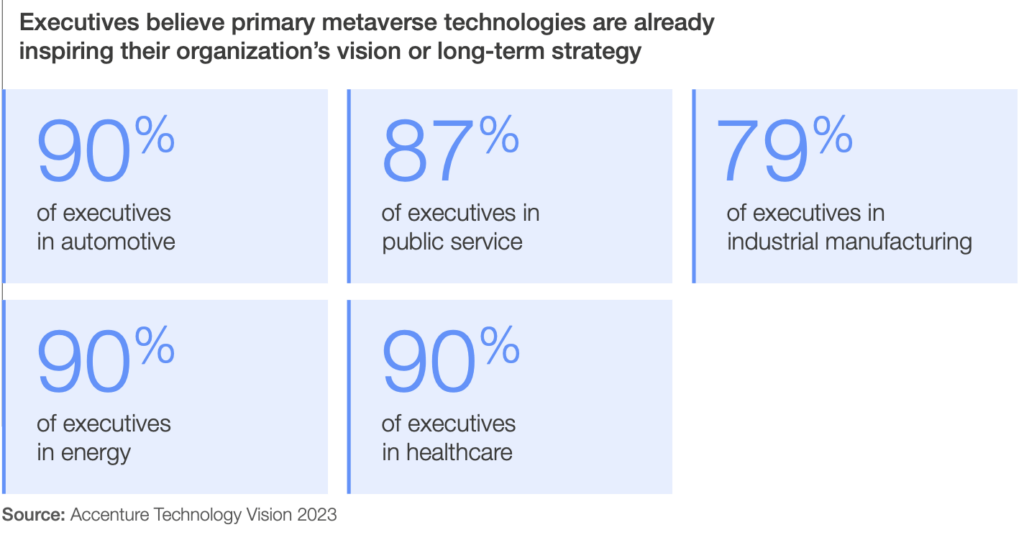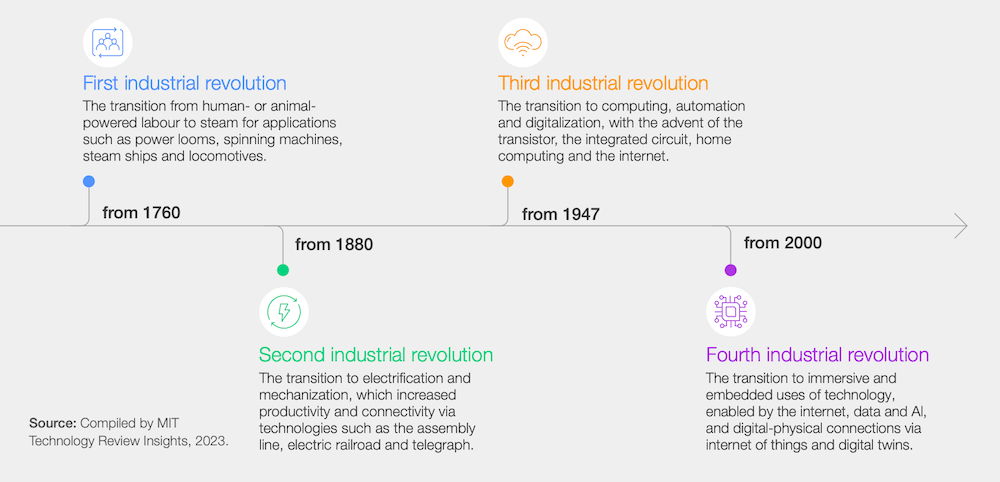The World Economic Forum (WEF) has a report that sheds light on the growing impact of metaverse technologies in the manufacturing sector. This emerging technology, which enables highly immersive virtual environments and is compatible with cryptocurrencies and NFTs, is quickly gaining traction among manufacturing companies and marks a shift into the next phase of the industrial revolution.
Industry leaders are taking notice: 92 percent of executives are actively exploring ways to integrate metaverse technologies into their operations. The WEF report, titled ‘Navigating the Industrial Metaverse: A Blueprint for Future Innovations’, predicts that the global industrial metaverse market will reach $100 billion by 2030, triggering major transformations in industrial value chains.

The industrial metaverse, as outlined by MIT and Siemens, creates digital twins of complex systems such as machines, factories, cities and transportation networks. This digital environment provides participants with immersive, real-time, interactive and continuous simulations that mirror the real world. Furthermore, such developments will enable industries ranging from automotive to healthcare to tackle complex real-world challenges through digital solutions.
At the core of the industrial metaverse are four key technologies: digital twins, spatial computing, artificial intelligence (AI) and blockchain, the report said. These technologies work together to create a blended reality, eliminating physical limitations and enabling greater flexibility, adaptability and real-time interactions. AI and quantum computing will improve digital twins, simulating real-world objects, revolutionizing processing capabilities and enabling highly accurate and fast simulations of complex scenarios.

Challenges and opportunities for the future
While the potential of the metaverse is enormous, navigating its complexity poses significant challenges for industry leaders. The WEF The report highlights the need for cross-sector collaboration to develop the necessary capabilities and ecosystems to fully realize the benefits of this technology. It also highlights the importance of a responsible, ethical and economically viable approach to harnessing the power of the metaverse. The report outlines critical considerations for stakeholders embarking on this journey.
Economic impact and future predictions
The economic impact of the metaverse appears to be significant, with a projected value of $900 billion by 2030. Virtual experiences are expected to contribute two-thirds of this amount, highlighting the important role of the industrial metaverse in shaping industries and driving of future innovations. Furthermore, it is predicted that by the end of this decade, the industrial metaverse sector alone will generate $100 billion in global revenues, surpassing both the consumer and corporate sectors combined.
In conclusion, the WEF report highlights the growing importance of metaverse technologies in the US manufacturing sector. With its potential to revolutionize product design, development and operational efficiency, as well as its significant economic impact, the industrial metaverse will clearly shape the future of several industries. Joint efforts and responsible implementation will be critical to unlocking the full potential of this emerging technology.

